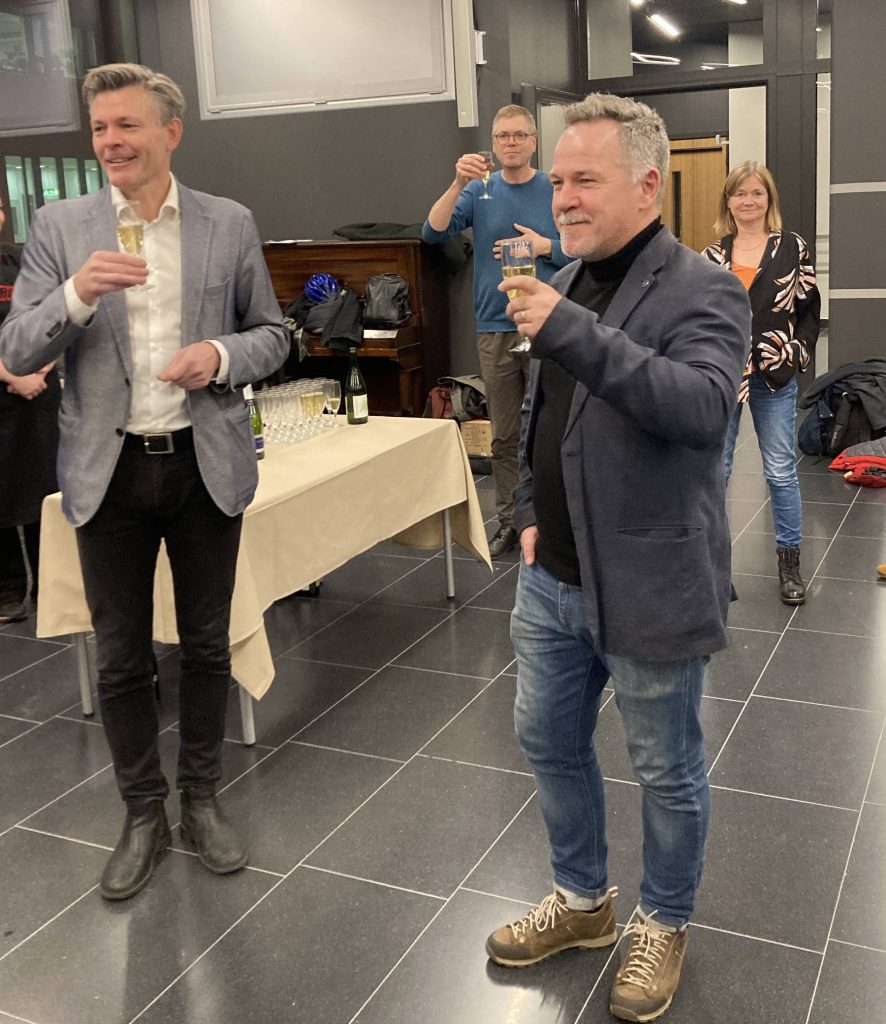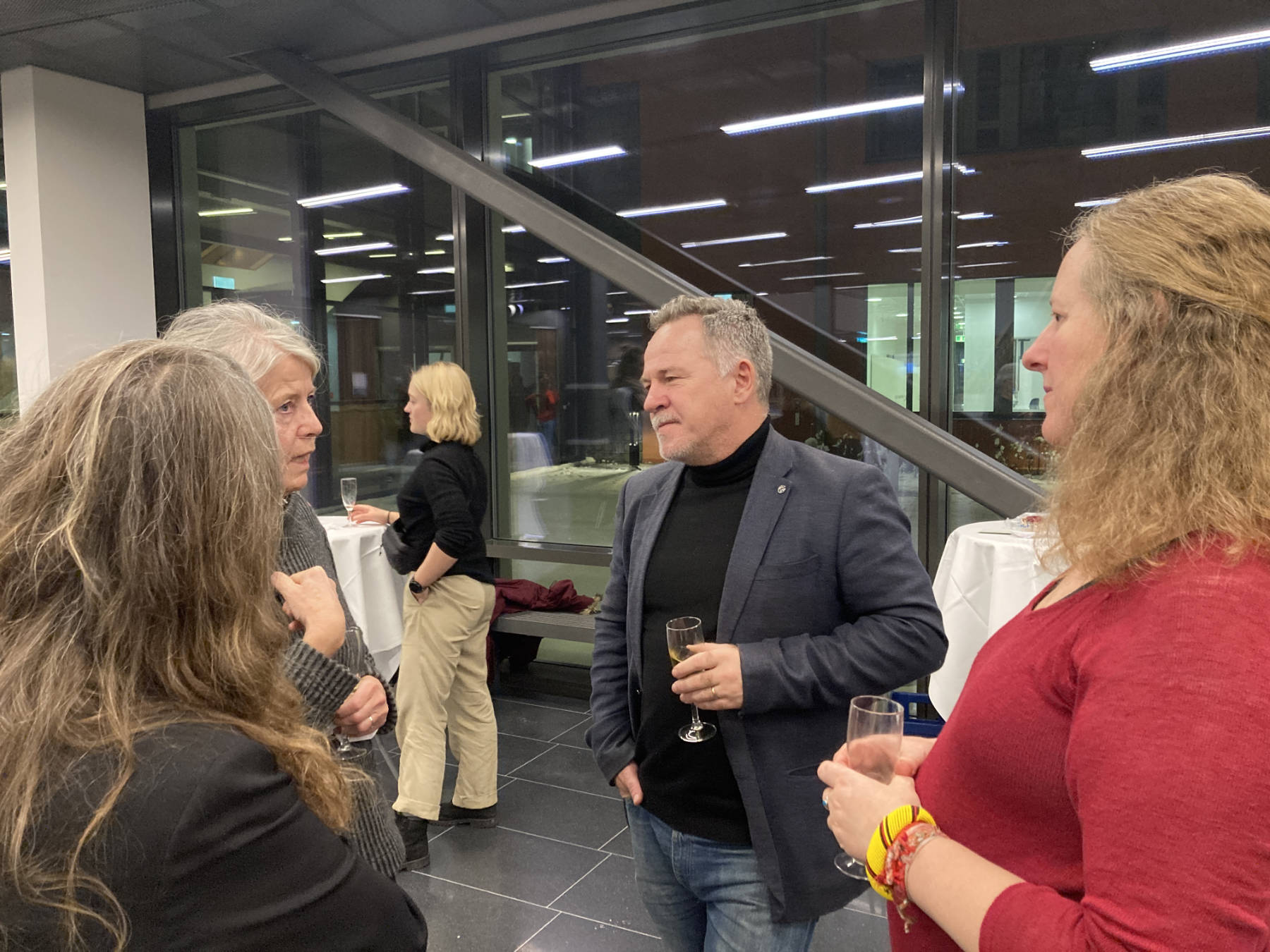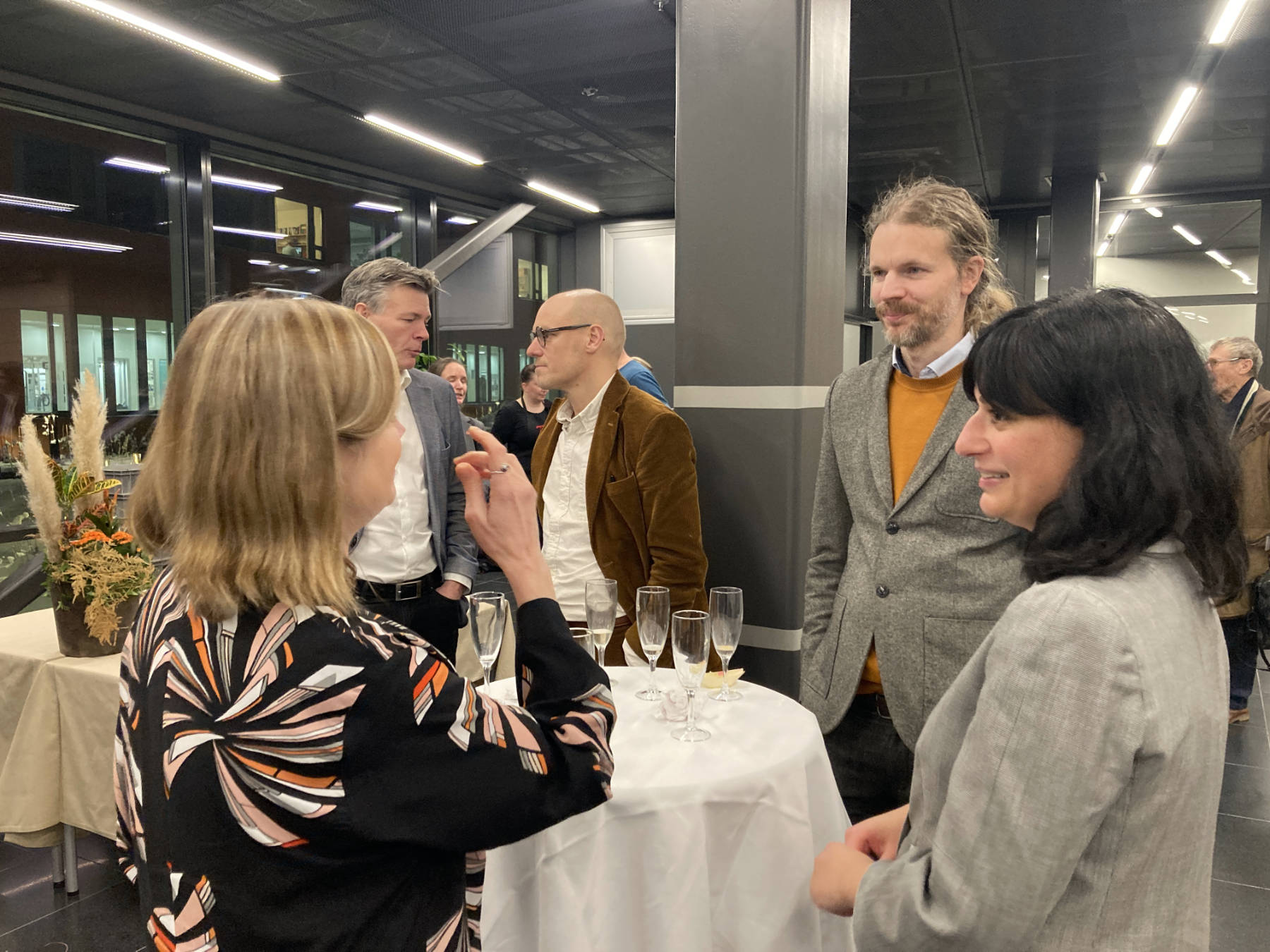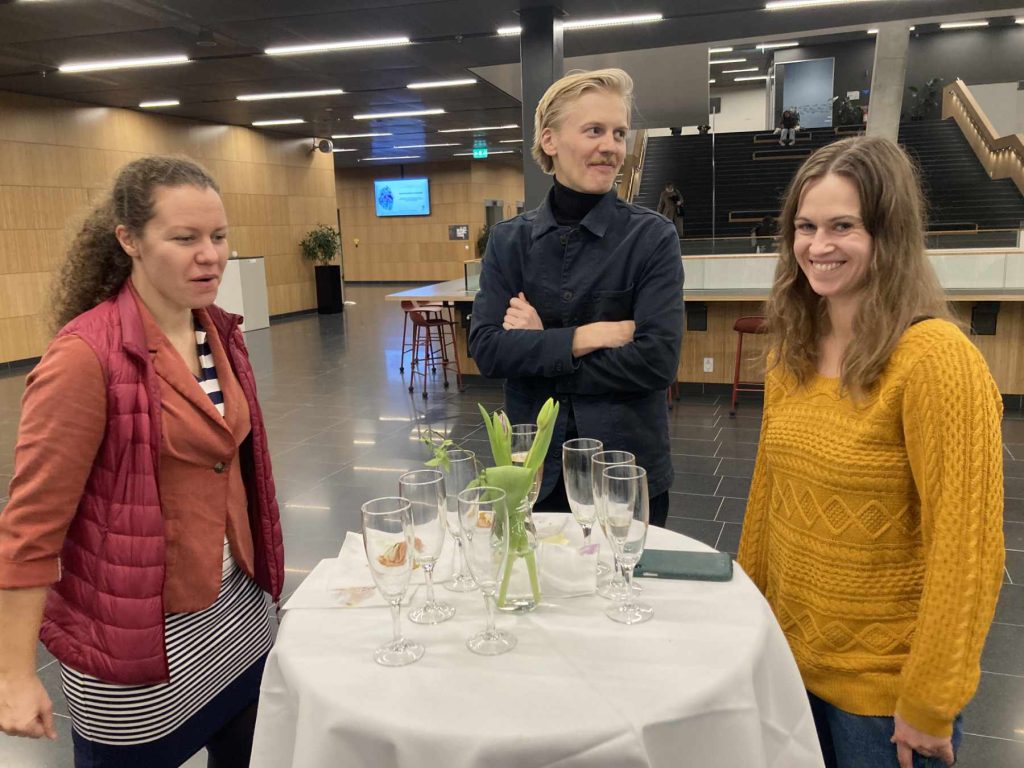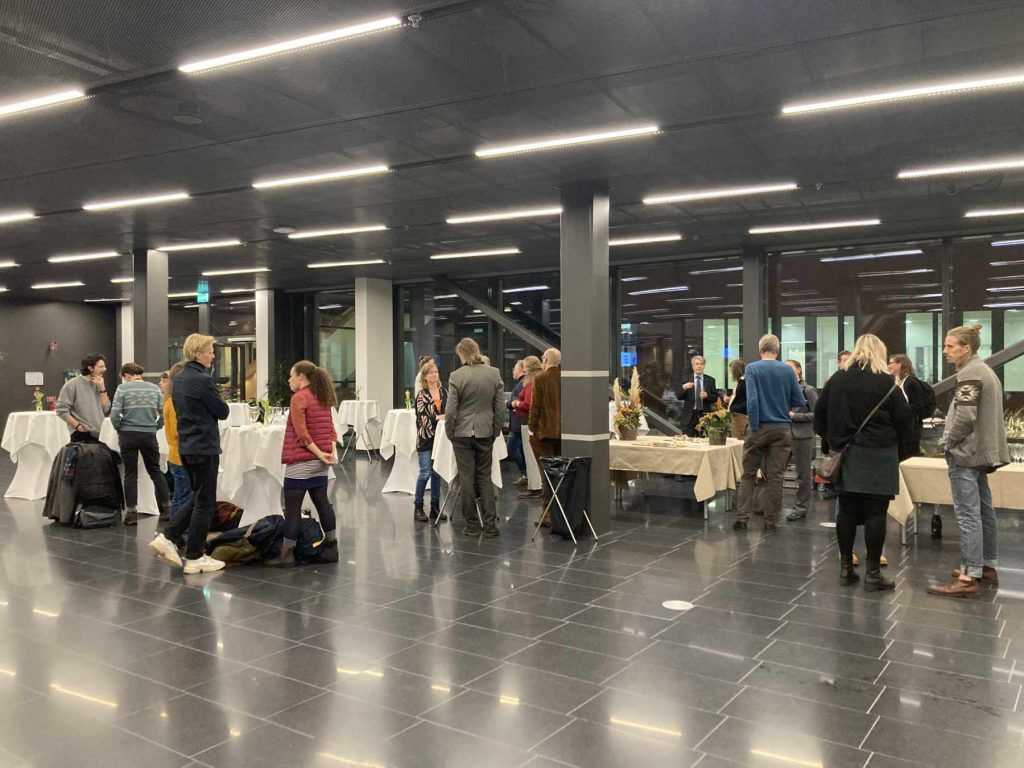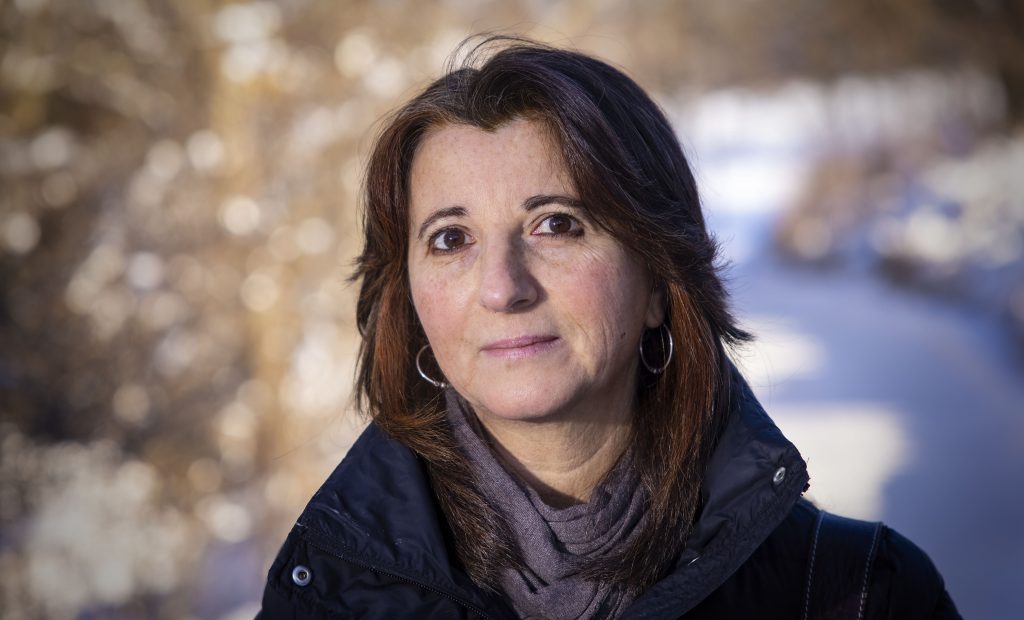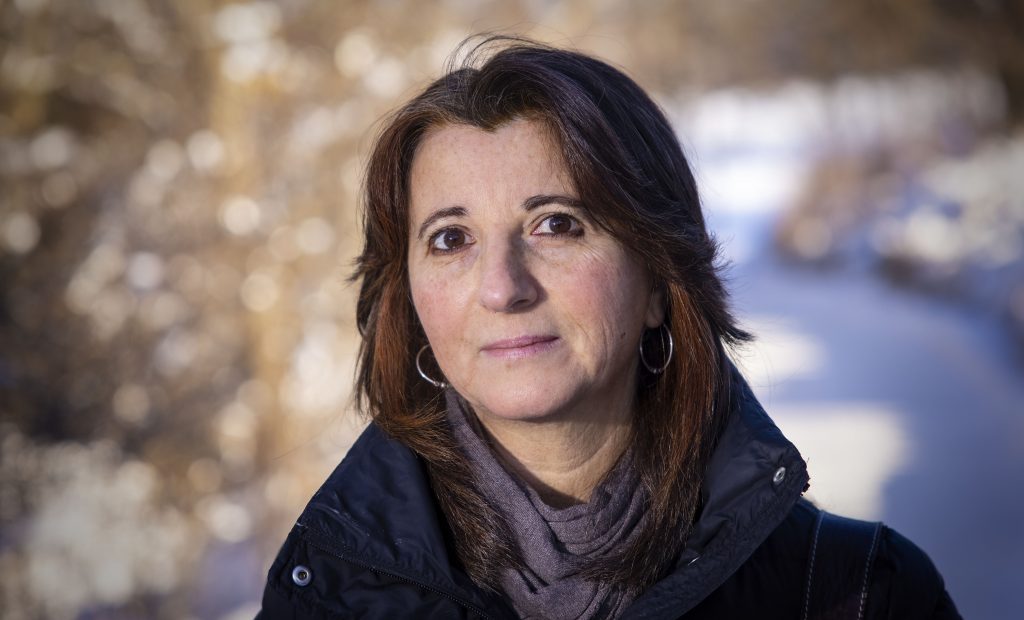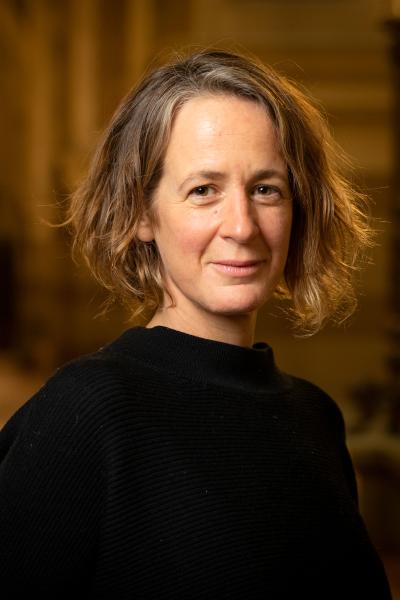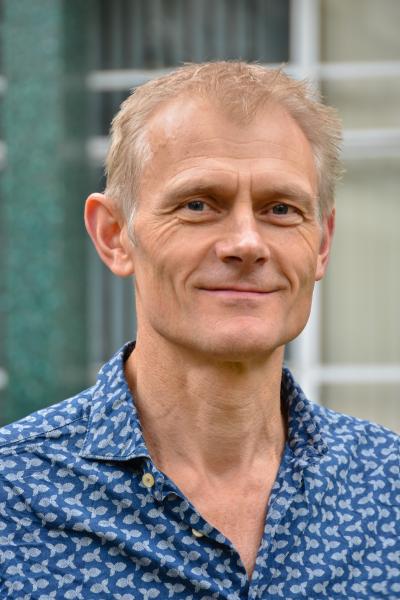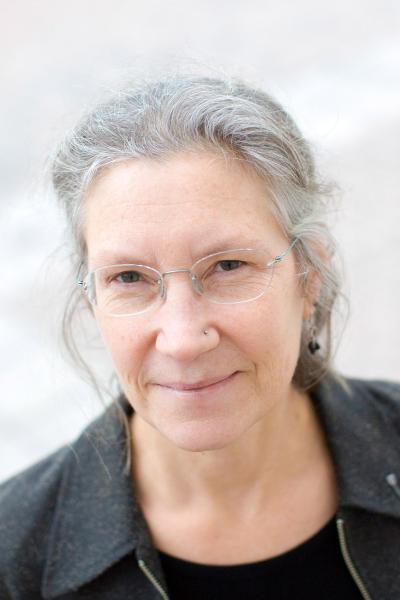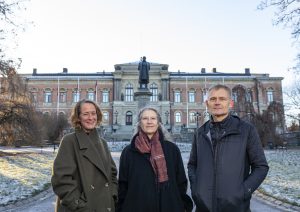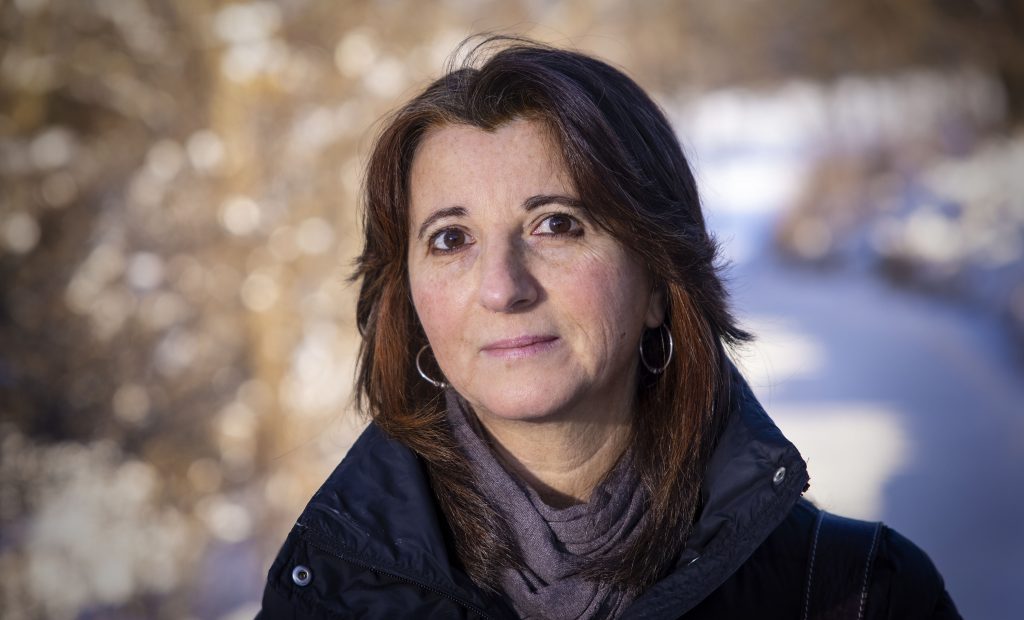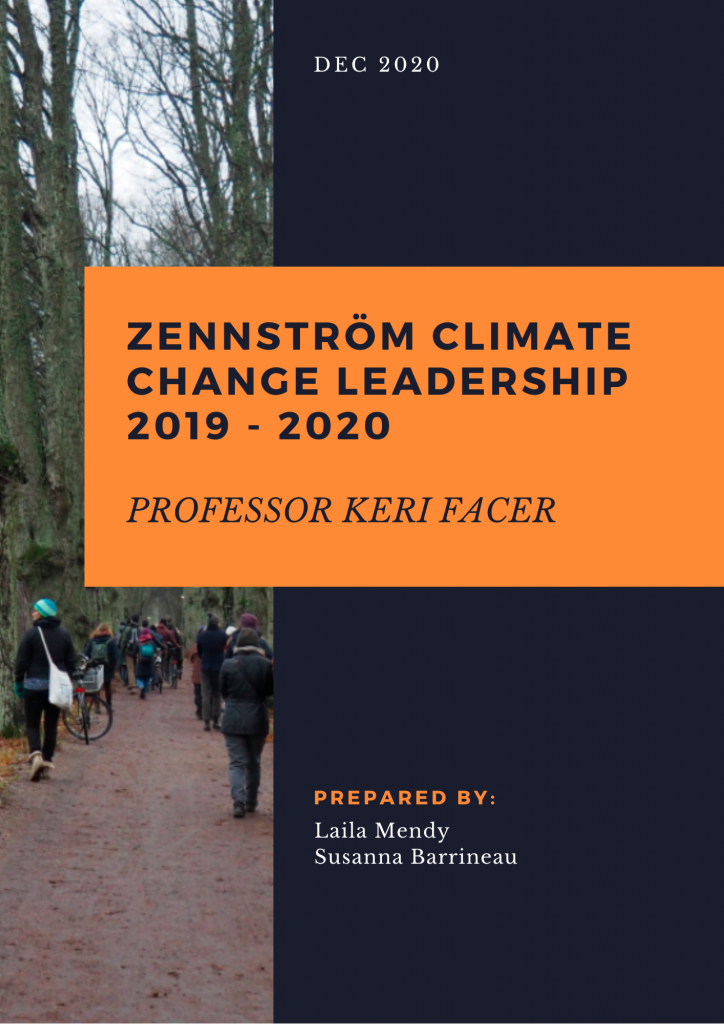On 21 November 2022 Sverker C. Jagers held his inaugural lecture as new Zennström visiting professor. The lecture on the need of climate change leadership, was followed by a panel discussion led by Mikael Karlsson. We were delighted to have Niklas Zennström in the audience, whose generous donation through Zennström Philanthropies to Uppsala University funds the guest professorships in climate change leadership.
The Zennström visiting professorships
The Zennström Professorship in Climate Change Leadership is a ten-year series of visiting professorships. It is co-funded by generous donations from Zennström Philanthropies, founded by Niklas Zennström, Uppsala University alumnus, and his wife Catherine Zennström. Earlier, over the past six years, four visiting professors have been hosted by the department of Earth Sciences at Uppsala university: Doreen Stabinsky, Kevin Anderson, Keri Facer and Stefania Barca. In 2021 Mikael Karlsson, associate professor in environmental sciences became the formal head of the climate change leadership (CCL) unit at the department. Thereupon, he has suggested new candidates for the Zennström visiting professorships, including Sverker C. Jagers.
In September 2022, Sverker C. Jagers, otherwise professor in political science at Gothenburg university, joined CCL as the fifth Zennström guest professor. Jagers has long standing experience working with environmental politics and environmental governance, driven by a deep interest in interdisciplinary science. Particularly, he is interested in assessing social and political acceptance of effective environmental and climate instruments, and under what conditions and by whom such instruments are feasible.
We used the occasion of Niklas Zennström’s visit to Uppsala this November to arrange Jagers’ official inaugural lecture as Zennström guest professor in climate change leadership.
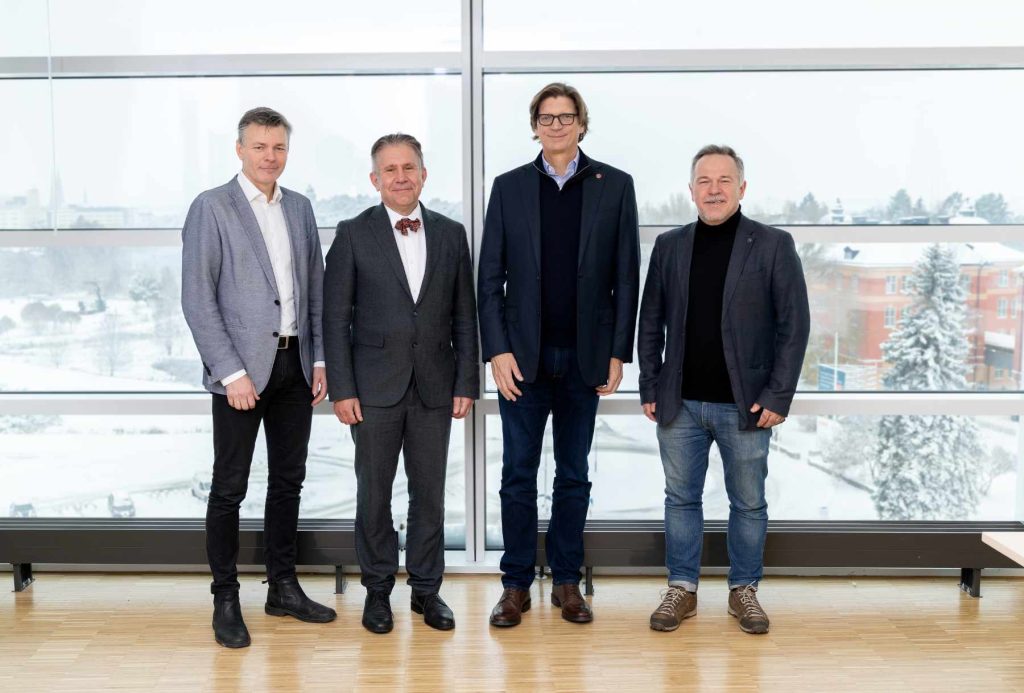
Inaugural lecture on the need of climate change leadership
In his inaugural lecture, Jagers proceeded from the theory of social dilemmas and collective action to explain the origin of climate change from a societal perspective and discussed how to overcome this problem. From Jagers’ perspective, climate change is similar to many other collective action problems, such as littering and corruption. The tricky thing with climate change, he argues, is the long-term and sizeable temporal and spatial scales – we’re basically dealing with a gigantic coordination problem. And just like any other collective action problem, it is unlikely that contributing actors will change their behavior spontaneously or voluntarily. Therefore, dealing with climate change requires active guidance and help; where climate change leaders are needed to show the possibility of alternative routes or contribute to necessary coordination through firmer steering. In his lecture, Jagers discussed several potential candidates who can take on this leadership role, including scientists, businesses, religious communities, and other members of civil society.
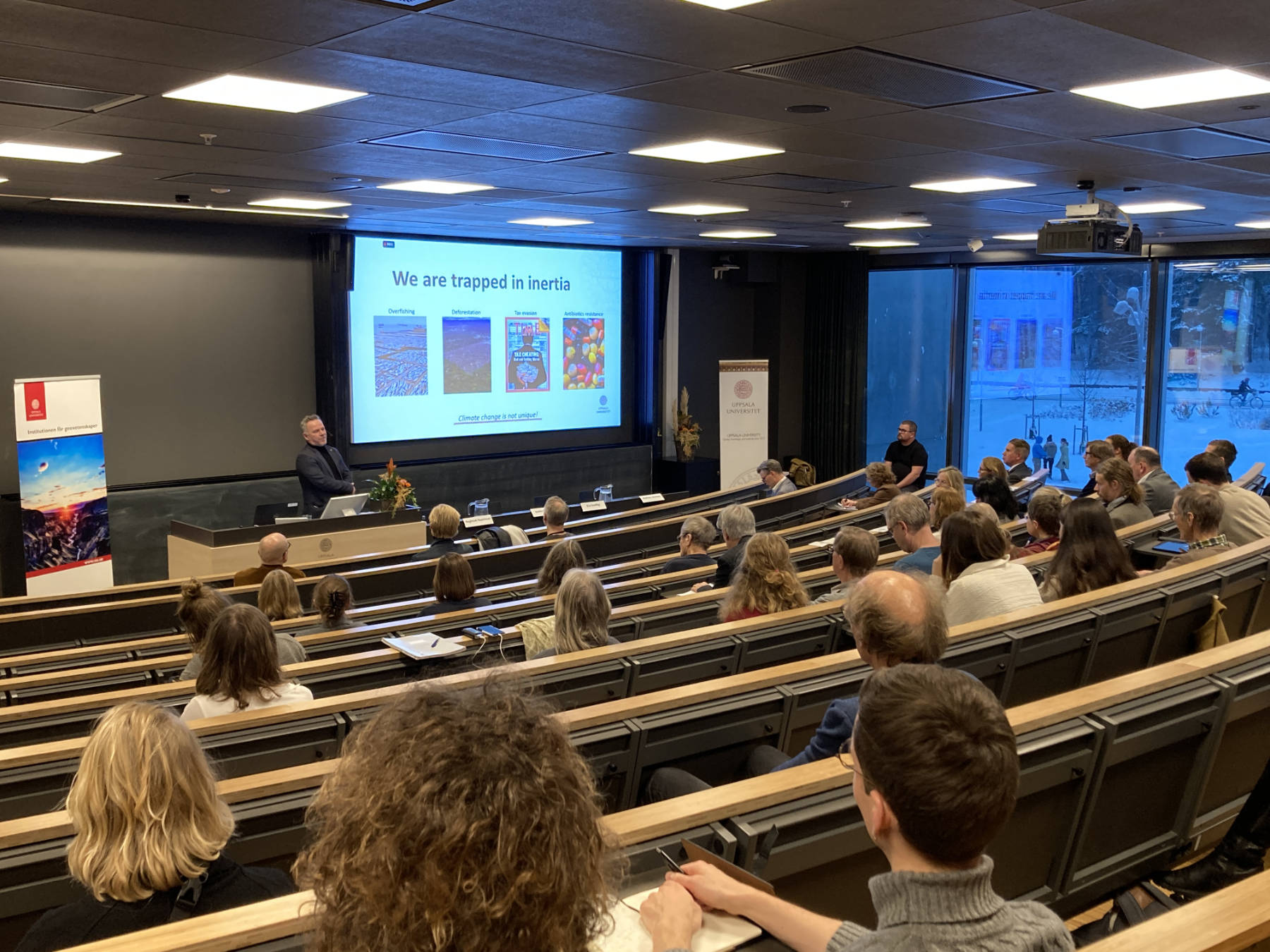
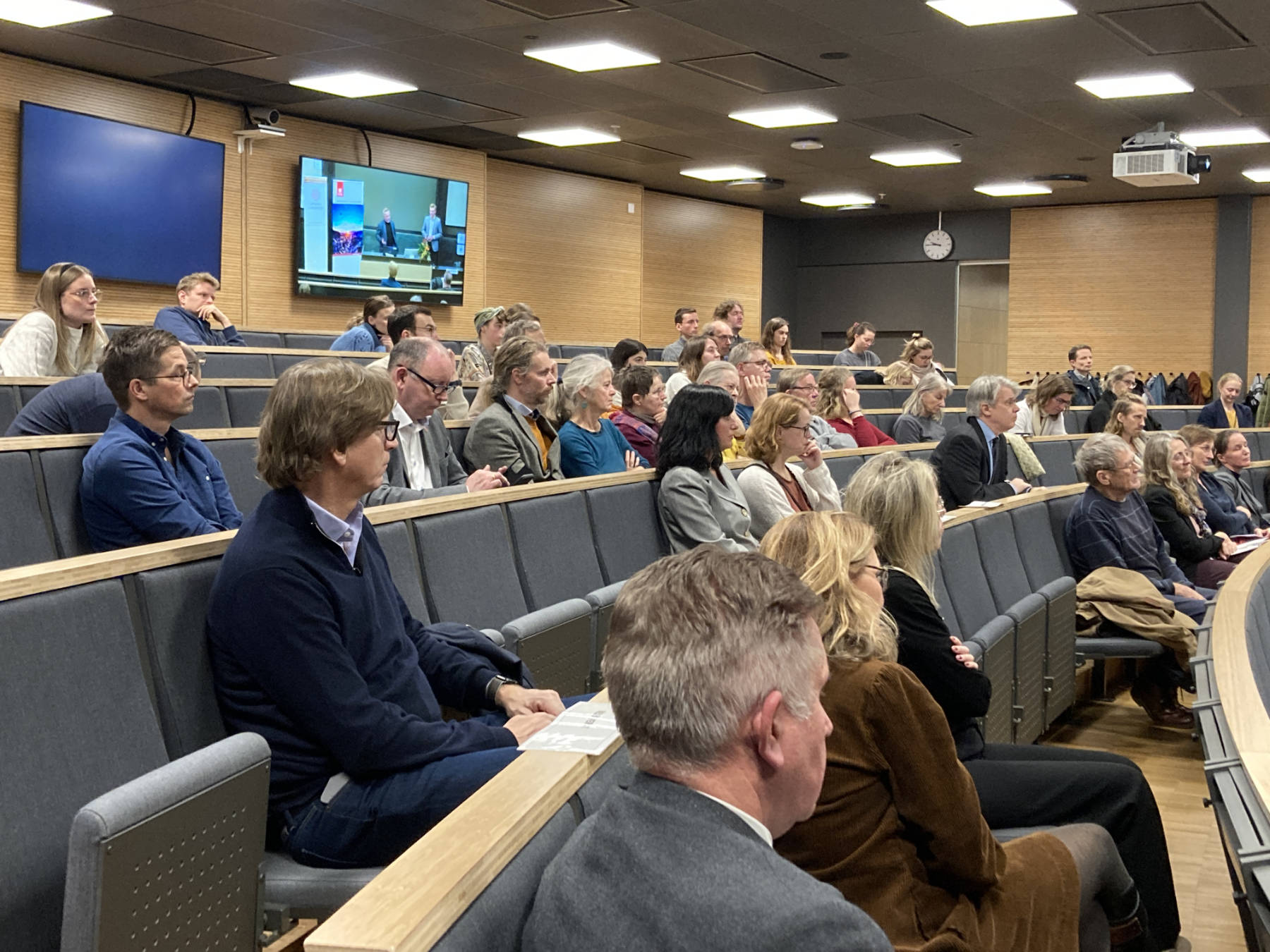
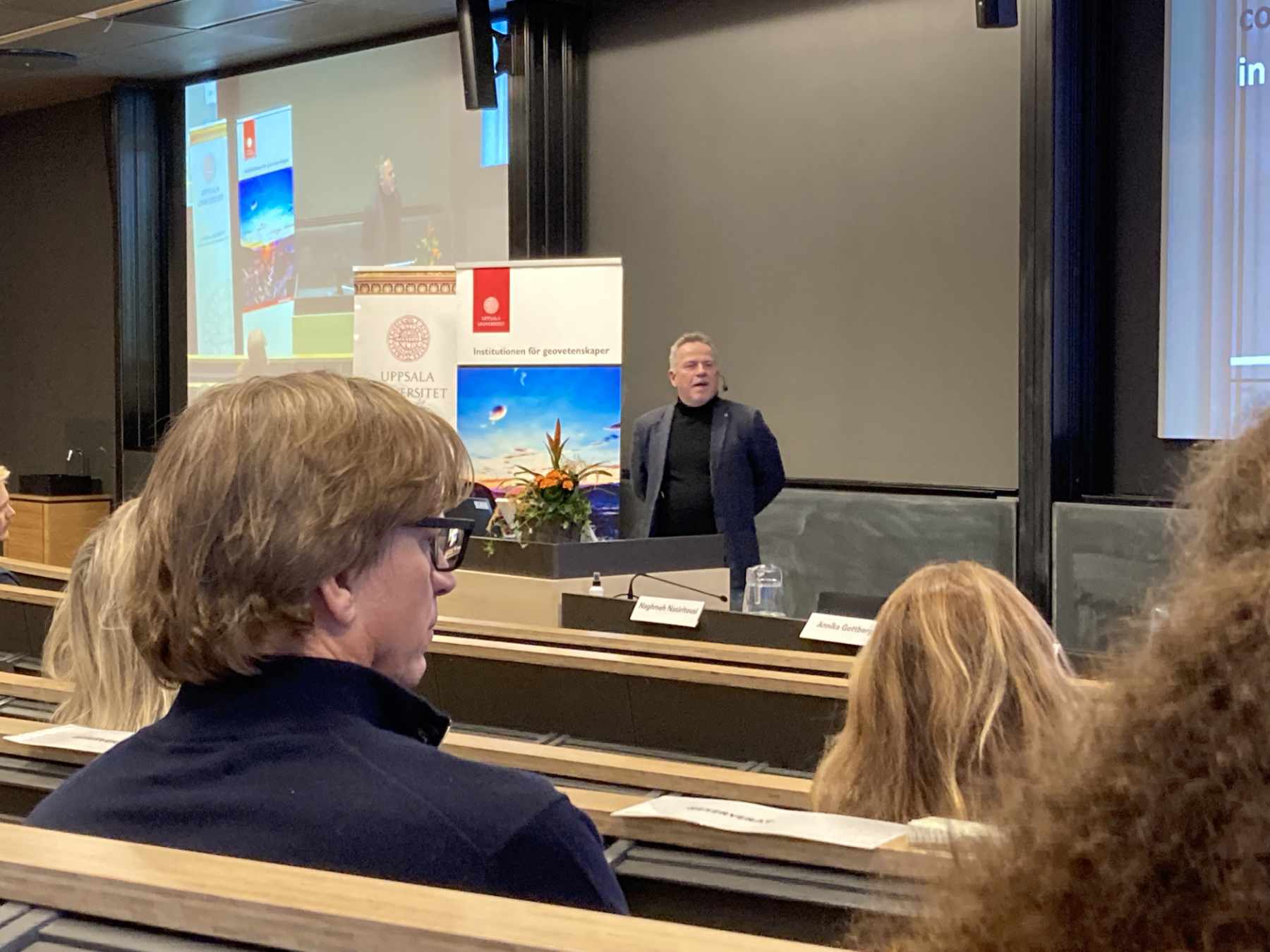
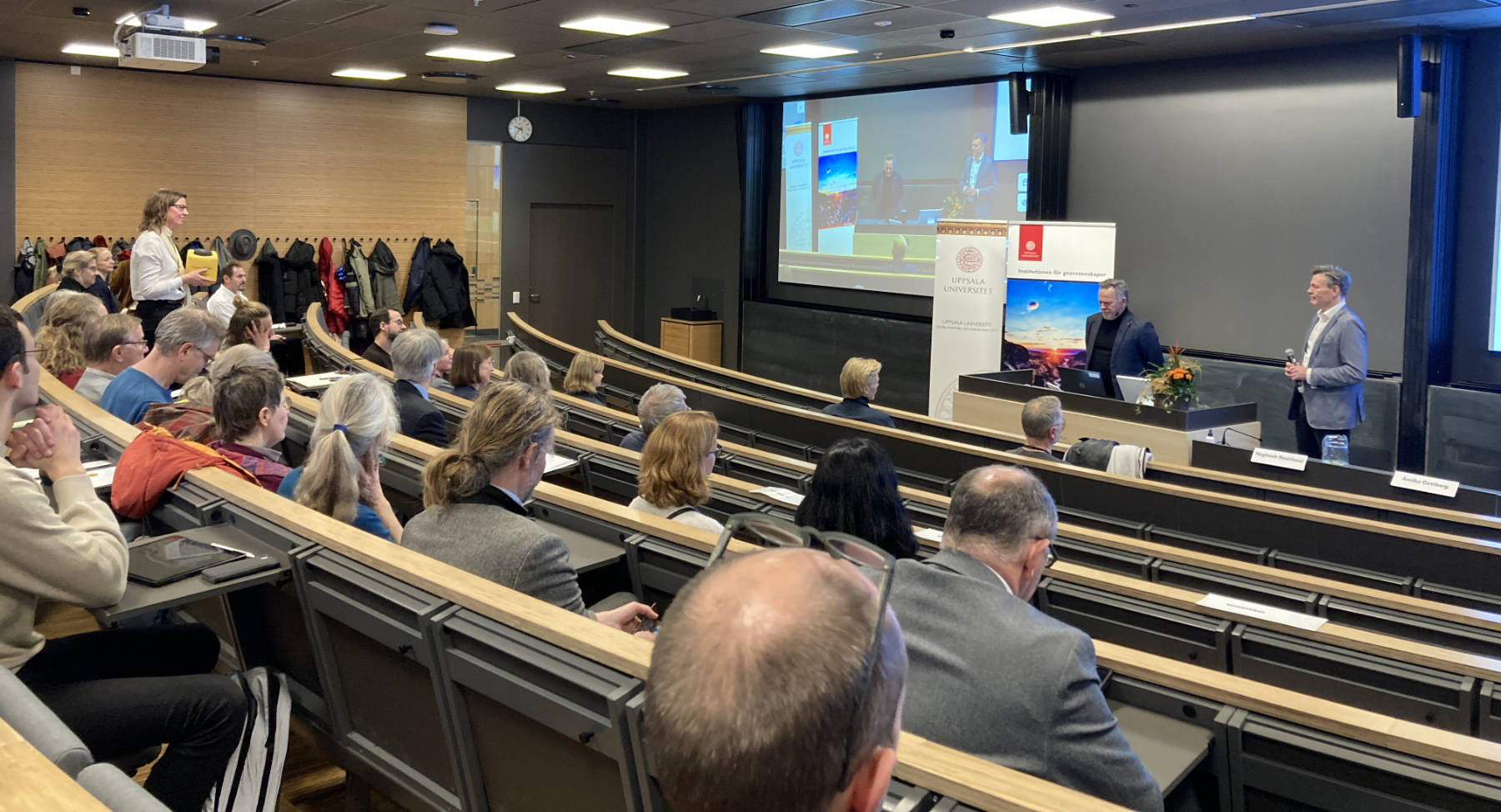
Digging into the nitty gritty of Jagers’ research
As a political scientist by training, Jagers particularly elaborated on the possibilities and obstacles for political climate leadership. Political leaders compared to other societal actors, he argued, have the most comprehensive and stringent toolbox, which makes them relevant to study from a leadership perspective. Research on collective action shows that people are willing to undertake behavioral changes to reach a common objective only insofar others do so as well. But in the pursuit of answering why individuals undertake collective action, research has found several determinants that could explain why individuals behave in ways that contribute to a common objective. In his research studies, Jagers has looked at public opinions on climate taxes and laws and found that if people perceive climate policies as being fair and effective, they are more likely to support them. This means that for individuals to support collective action on climate change, policy instruments should be fair and effective, or at least perceived as such. Jagers suggested that for policymakers to show climate leadership, they should consider such determinants when developing and implementing climate policies, as a means to increase policy support and legitimacy.
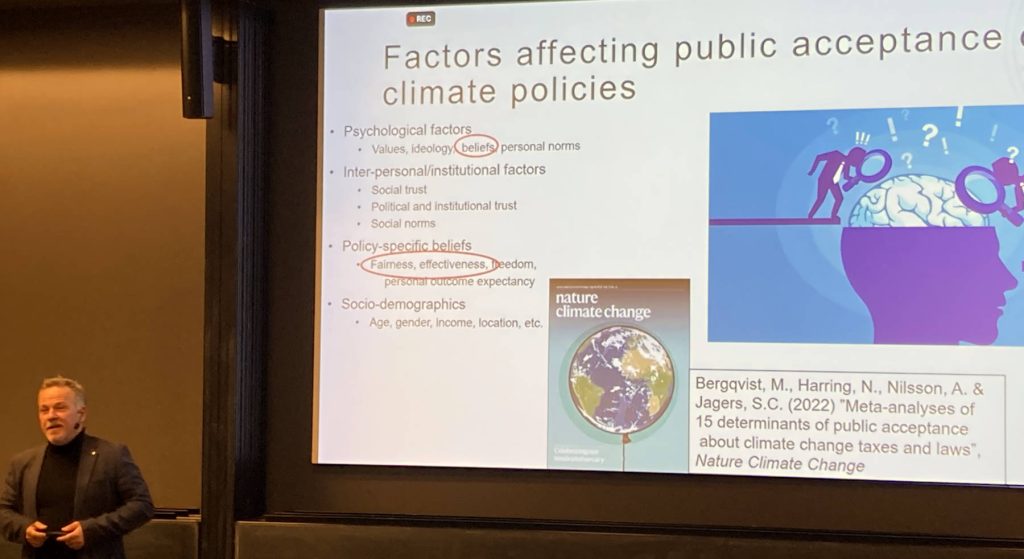
Jagers then moved on to discuss environmental research from a broader perspective, asking what sorts of questions research should pose and answer. He argued that environmental research today is too focused on asking questions to prove a point (are these tragical things happening in society justifiable?) or testing a theory (could one explain the climate change problem by approaching it from another angle?) or challenging theories (does X explain climate change problems better than Y?). Jagers argued that science should be more applied and that researchers should pose questions which can help solve, avoid or mitigate a problem. According to Jagers, science should contribute to making the world a little bit better and naturally, scientists should to a higher degree ask questions that prompts such research (how can this theory help solve that problem?).
Examples of climate leadership in different sectors
Jagers’ lecture was followed by a panel discussion led by Mikael Karlsson with representatives from different sectors. The panelists were chosen to match the actors (potential climate leaders) that Sverker C. Jagers referred to in his presentation: Naghmeh Nasiritousi, Associate Professor in political sciences at Stockholm university, Annika Gottberg, environmental specialist at Church of Sweden, Mattias Johansson Head of Public Affairs at Volvo Cars and former chief of staff at the Ministry of the Environment (C) and Eva Svedling, elected CEO Global Challenge (Global Utmaning) and former undersecretary of state at the Ministry of the Environment (MP). The panelists summarized their thoughts from having listened to Jager’s inaugural lecture. They furthermore discussed challenges and opportunities in their respective sectors with regards to climate change and how leadership promoting collective action and transformation can be taken.
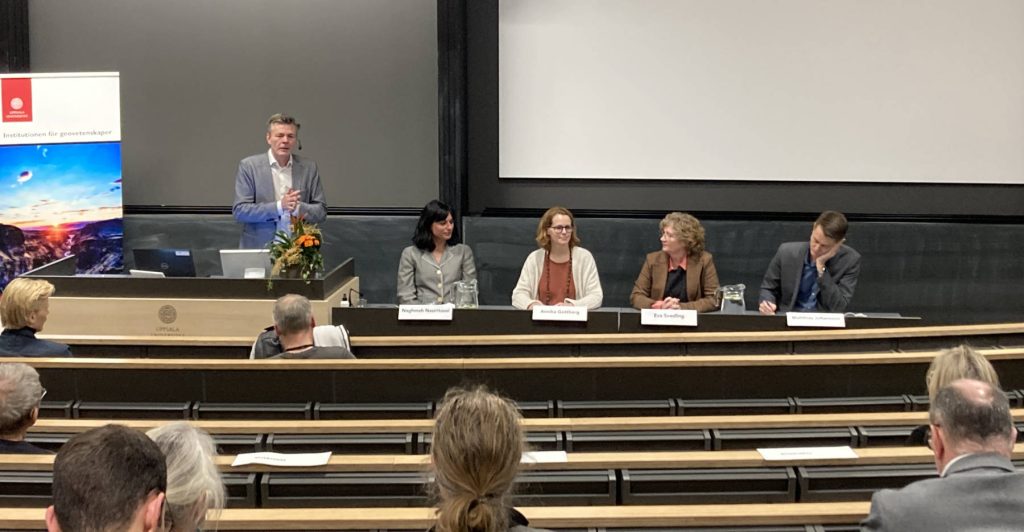
Nasiritousi agreed to many of Jager’s points and continued the discussion on political climate leadership, pondering about the lack of such leadership today and how research could help in supporting the evolution of political climate leaders. Johansson, representing the private sector, agreed that there is a current deficit in political climate leadership, but while this has implications for them as a company, he argued that their pathway forward is clear: electrification is happening with or without policy support. He continued saying that the private sector has to change because of customer and investor pressure, but also because they think it is the right thing to do.
Svedling argued that they can support climate leadership by providing a platform where civil society actors, businesses and politicians can meet and discuss climate solutions. Global Utmaning, where Svedling will take over as CEO in February, can work as a node to bring different societal actors together to accelerate climate action as well as pushing others to do the same.
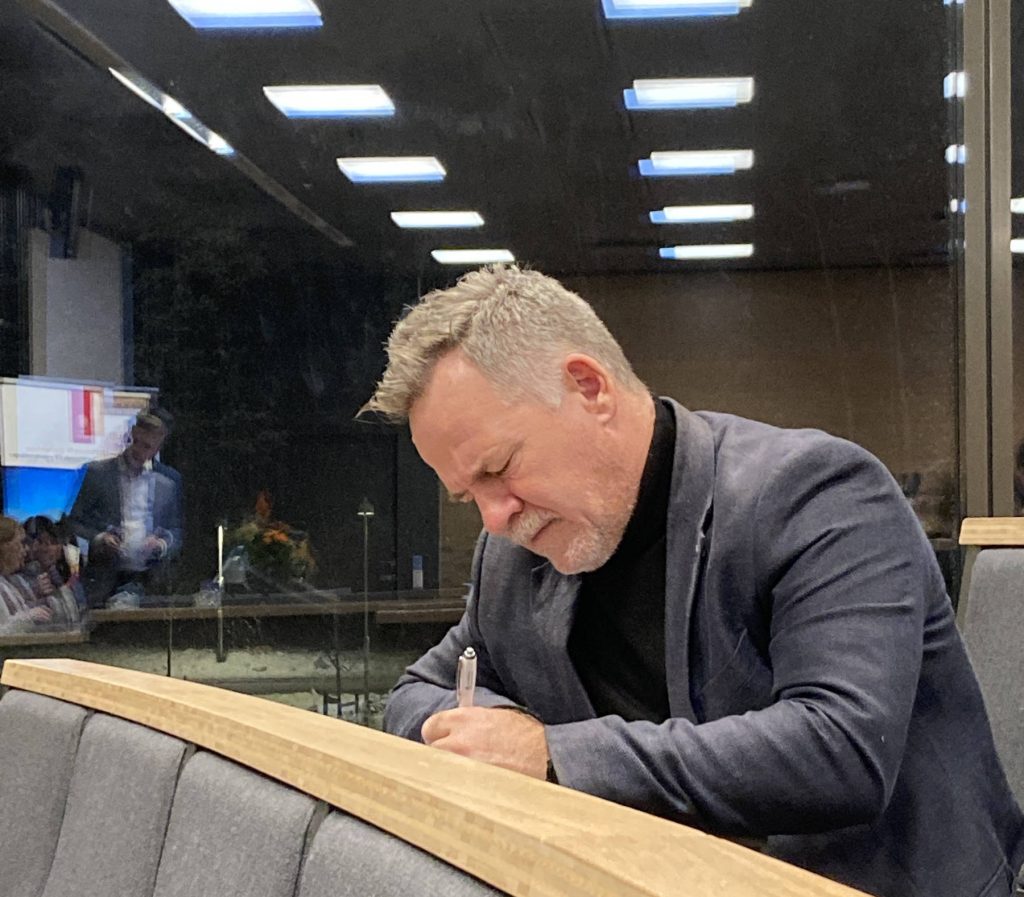
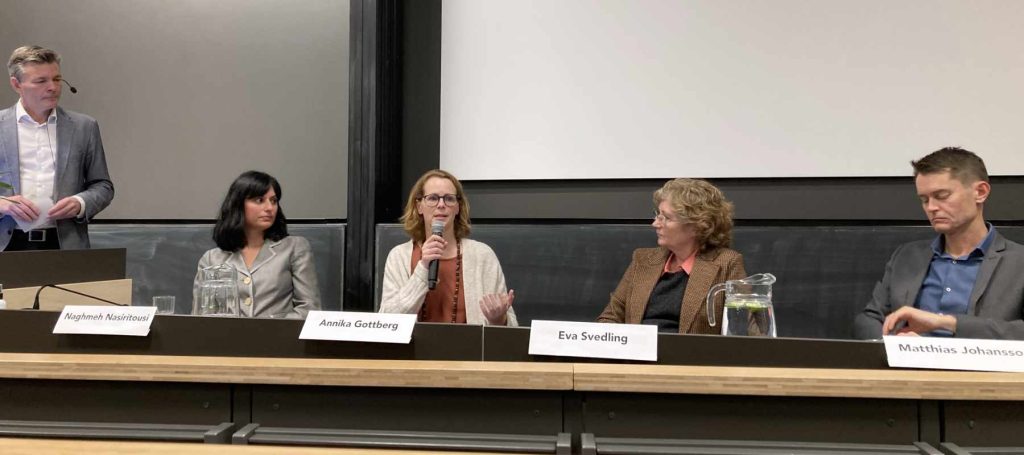
In the Church of Sweden, values are seen as crucial in overcoming barriers to climate action. According to Gottberg, nurturing values of equality and justice is key in their climate work. The Church can, through its wide community and as an important meeting point for people, shed a light on climate justice issues and support individuals in taking climate action. As an organization, they can also undertake measures themselves and “lead by example”.
Following the panel discussion, Karlsson invited the audience to ask questions about Jagers’ presentation. A question that awoke interest concerned the question of power and how powerful actors can prevent or hamper climate leadership. Jagers found this question excellent, arguing that power is of course relevant in all types of collective action problems, not least concerning climate change. However, given limited time and the complexity of the issue, Jagers invited the audience to attend his master course, where Jagers expands on his thinking on the relationship between power, leadership and climate change.
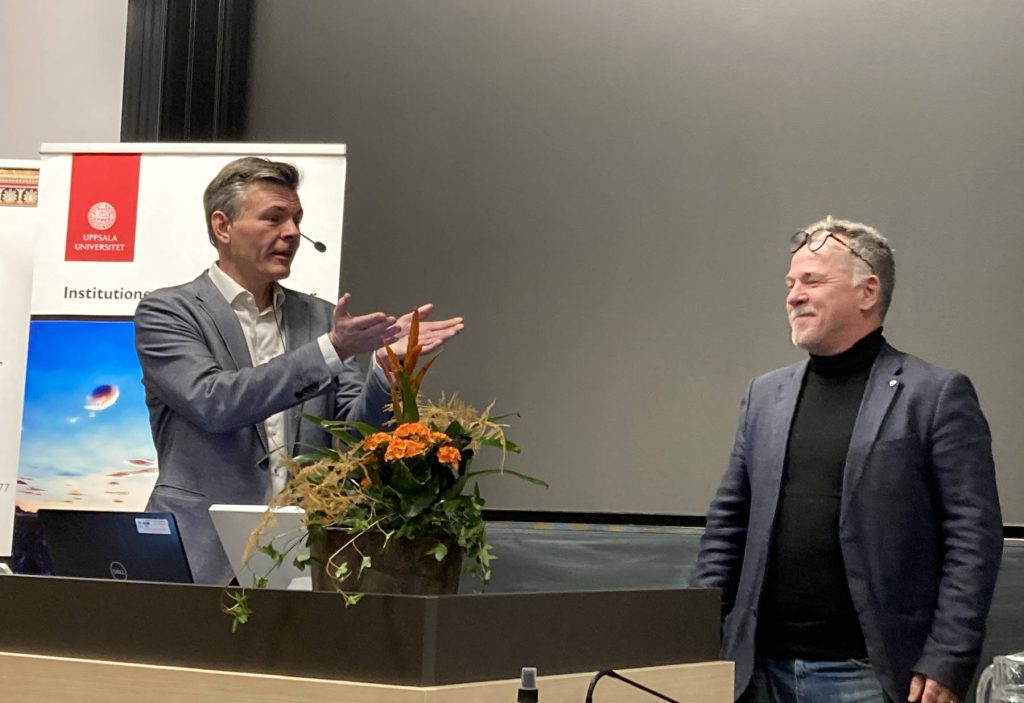
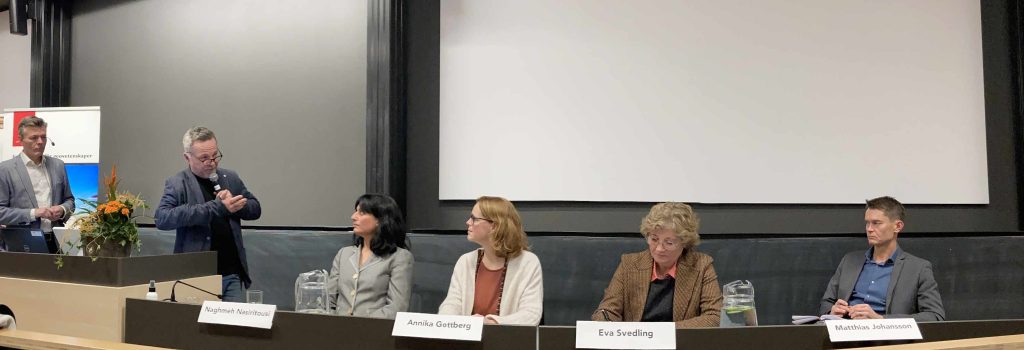
Fltr: M. Karlsson, S. C. Jagers, N. Nasiritousi, A. Gottberg, E. Svedling, M. Johansson
Celebrating our new Zennström guest professor
After the successful official part of the event, the day ended with a mingle at the Ångströms laboratory with climate friendly finger food and more informal discussions with the panel, the audience and the new Zennström guest professor, Sverker C. Jagers.
